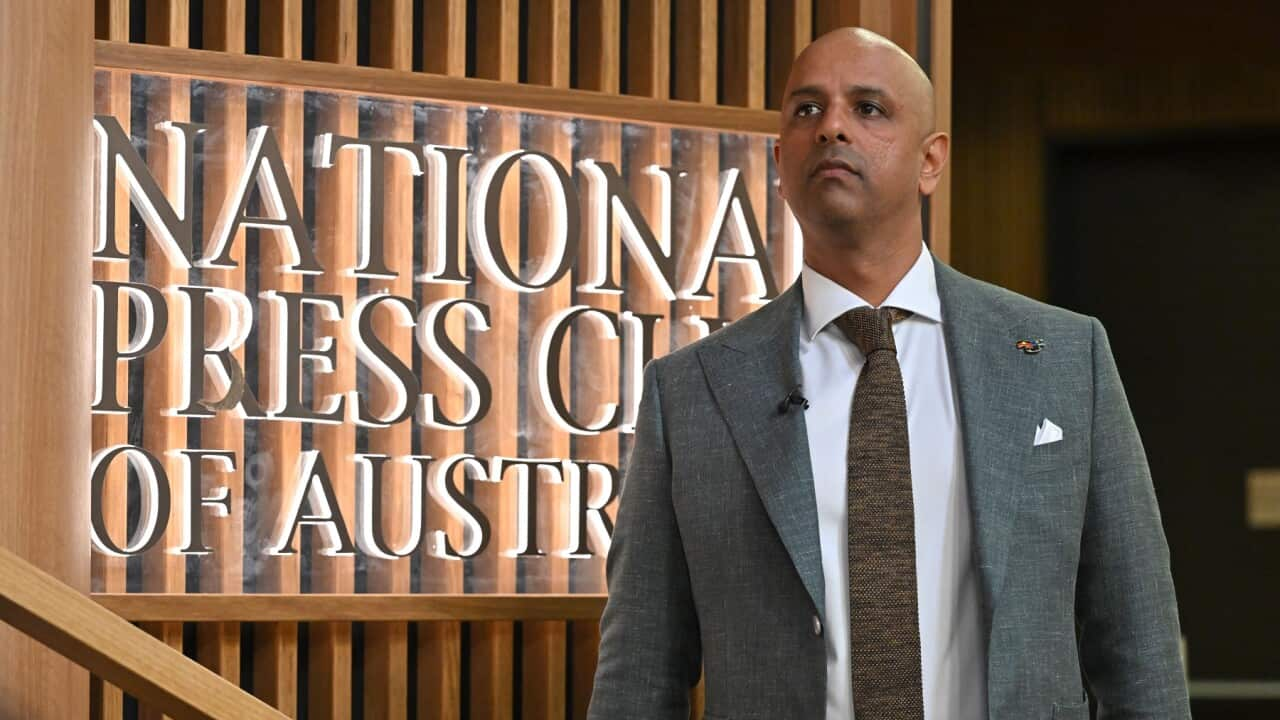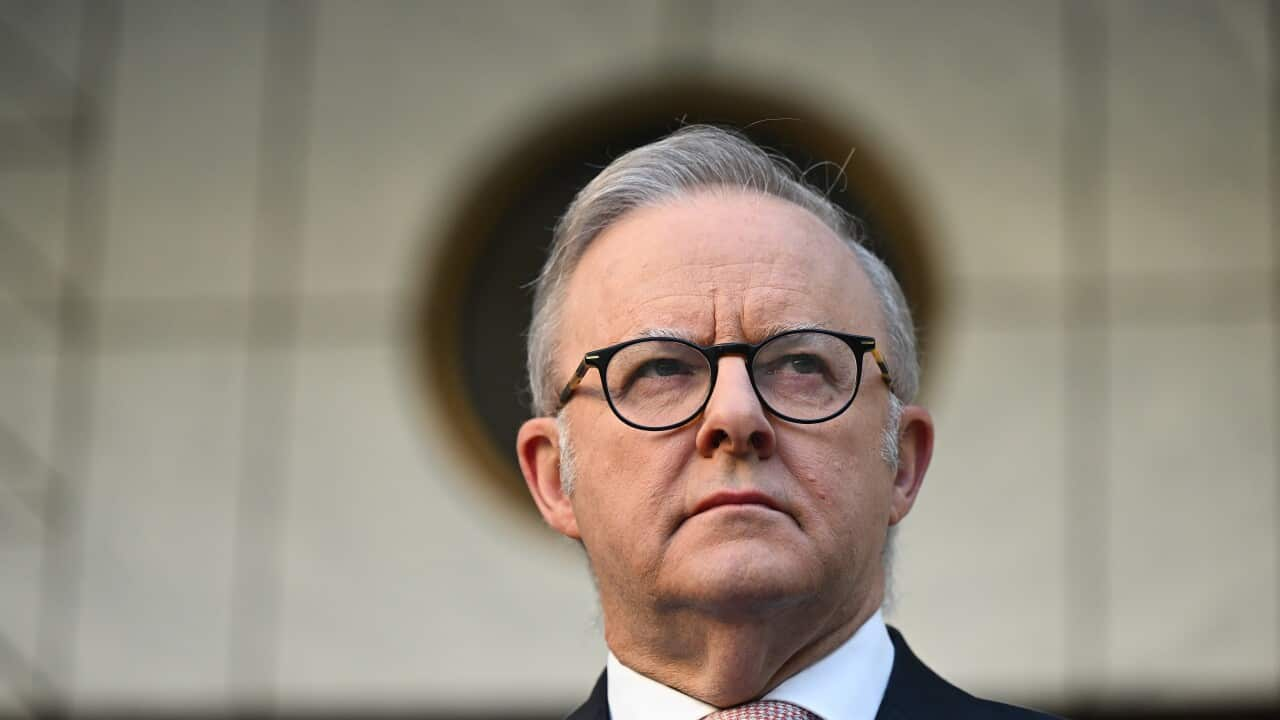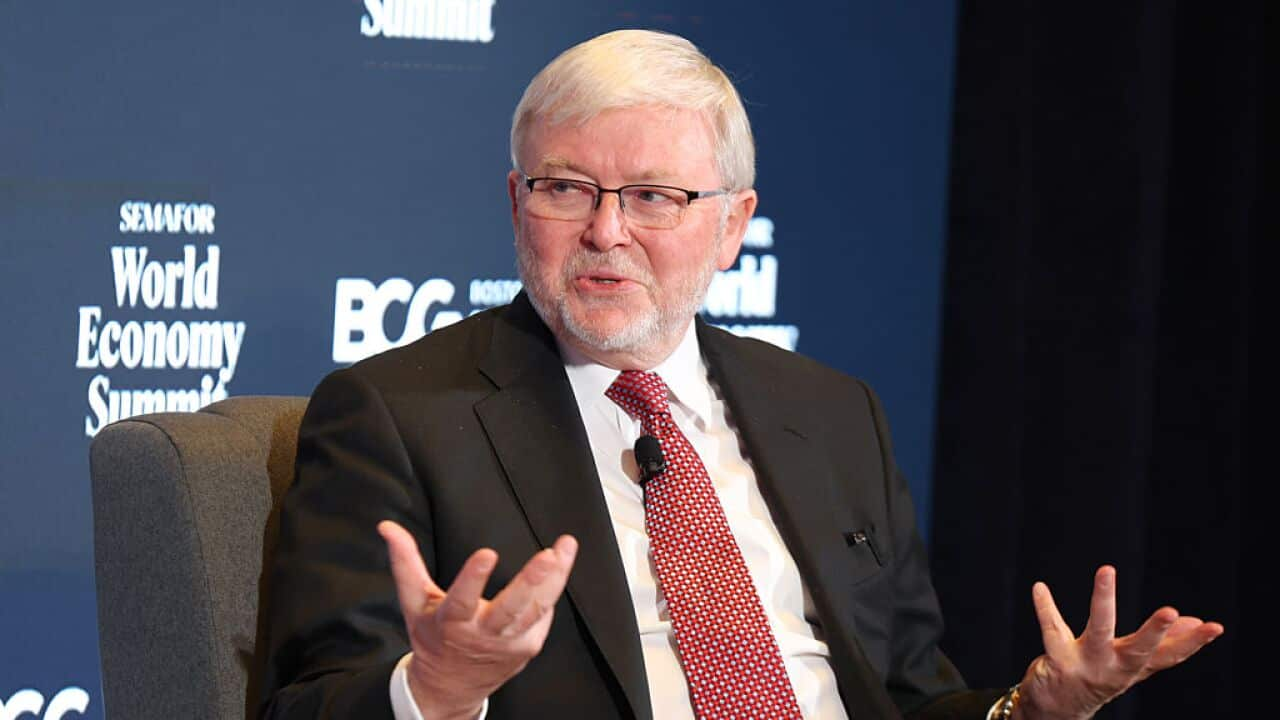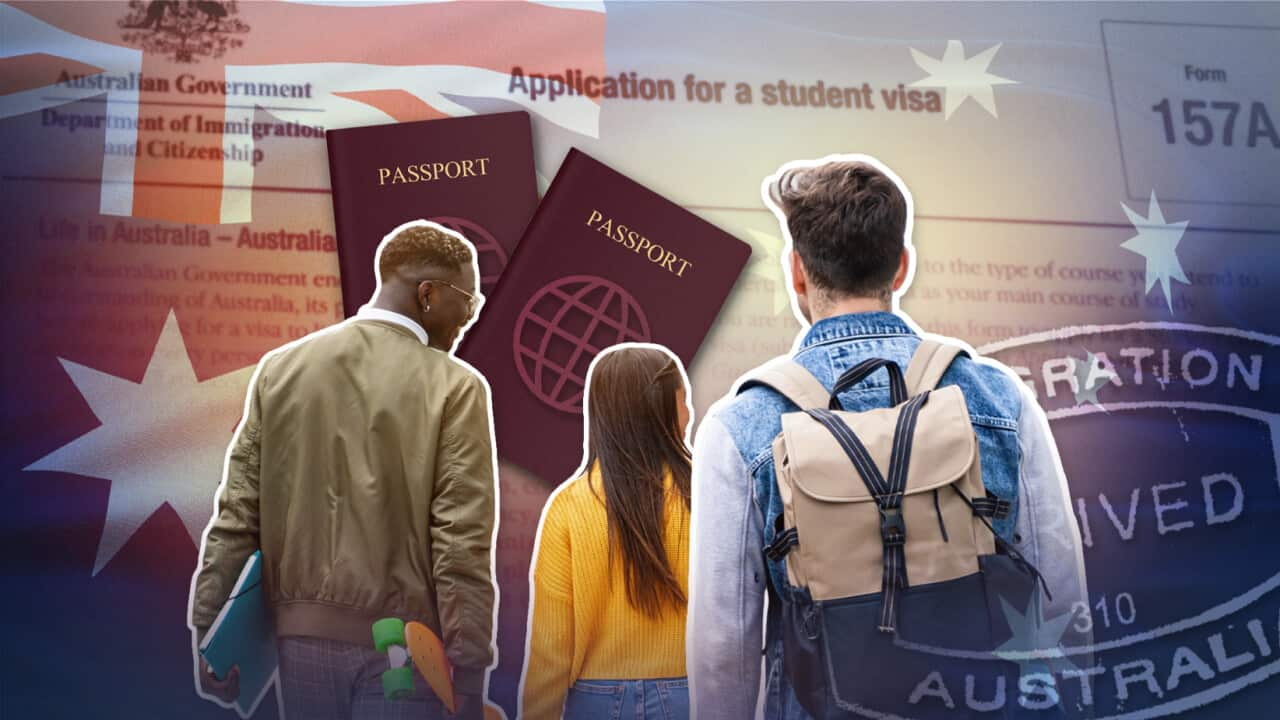TRANSCRIPT
"We already have the solutions to tackle racism in Australia, all we need now is genuine commitment and political will."
That's Giridharan Sivaraman, Australia's Race Discrimination Commissioner.
He's calling on the government to implement a plan to address racial discrimination in Australia.
"Racism is a word, an issue, that draws overwhelming reactions, visceral at times. Sometimes I wonder if some people think saying 'racism' is like saying 'Beetlejuice', that it will make the demon appear."
In an address to the National Press Club, he called for the Commonwealth to respond to the National Anti-Racism Framework released nine months ago.
It includes 63 recommendations to eliminate racism across society, ranging from changes to legal systems to data collection.
Mr Sivaraman says it comes at a critical moment for Australia.
"The war in Gaza has triggered a terrifying surge of antisemitism, anti-Arab racism, anti-Palestinian racism, and Islamophobic hate. Mentioning those different forms of racism doesn’t mean equating them. Mentioning one doesn’t invalidate another."
Hamas killed more than 1,200 people in Israel on October 7 2023, with at least 200 hostages taken.
Since then, more than 60,000 people have been killed by Israel's bombardment of Gaza.
The Australian Human Rights Commission has revealed some findings of its Seen and Heard project that aims to address increasing racism in the wake of the conflict.
Mr Sivaraman says people feel stripped of their humanity when the suffering is not recognised.
"When the massacre of Jews and Israelis by Hamas on October 7 is not acknowledged, it dehumanises them and, by extension, Jewish and Israeli Australians. When the devastation caused by Israel in Gaza the deaths of 60,000 civilians, mass starvation, the destruction of homes is ignored, it dehumanises Palestinians, and by extension, the Palestinian, Arab, and Muslim Australians who identify with them."
Since October 7, the government has consistently raised concerns about social cohesion in Australia.
The Prime Minister, Anthony Albanese, spoke last week on the subject:
"There's no place for antisemitism. There's no place for Islamophobia. There's no place for hatred in this country. They don't want conflict brought here."
But Mr Sivaraman says that shouldn't mean the issues are ignored.
"I mean, of course we don't want conflict here but we can't distance ourselves from the inhumanity that occurs, wherever it is occurring."
Bilal Rauf from the Australian National Imams Council says the message to communities is clear.
"To say to that person, well, that's a foreign issue you shouldn't be affected by that is not only artificial, it's heartless, it's unrealistic."
He welcomes the anti-racism plan.
"I think a framework that's been put forward, and the key points that have been made are well founded, and it's something that that I agree with."
The Commissioner says communities have, at times been pitted against each other through the government's approach.
"When it comes to solutions that will tackle racism, if you just work with one community to the exclusion of another, you don't come up with solutions that will help everyone. Other communities feel like they're not seen, they're not heard, that their trauma isn't real that. Creates distrust in government. It creates distrust between communities."
Mr Rauf says that has been felt since October 7.
"We, as a society, we stand or fall together, either united and if divided, then that doesn't bode well for any of us, and it hasn't helped that the or the perception that governments and politicians have at times, taken partisan position, so for instance, lighting up the opera house or steps like that in support of one group of people, or promoting laws designed specifically for one group of people, without a regard for the interests of all of us and protecting all of us and recognizing the trauma and the suffering and the experiences of all of us."
Peter Wertheim from the Executive Council of Australian Jewry says division has been driven within the community.
"I think the government has done everything it can to to try to ameliorate the situation. But the polarisation in the community, which is not coming from the government, it's coming from changed circumstances globally and in Australia, that's, that's, that's not something you can shoot home to government. That is something that communities themselves have to take responsibility for, and which governments need to support them in doing."
He supports measures to address racism in Australia, but says the solution needs to be based in the community too.
"My own view is that the best way of tackling any form of prejudice is to tackle it at its source, and that is where it's coming from, from the communities itself. That all the communities themselves and governments obviously have a role to play there, but I don't think that the primary responsibility lies in that sector. Racism is not a government phenomenon."
Federal government ministers declined the request for interviews, and did not provide a statement in time for publishing.













